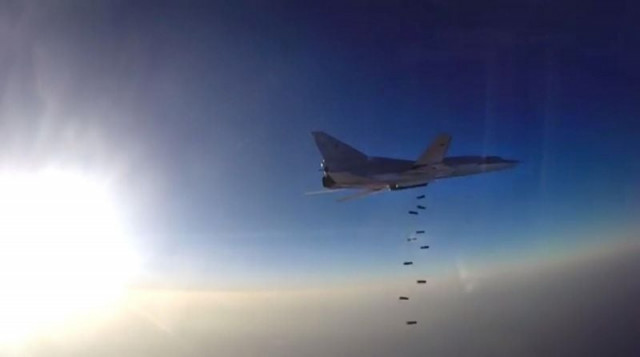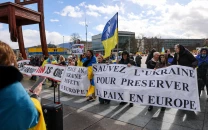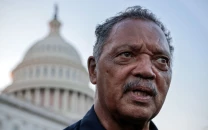Russia says killed commanders of ex-Qaeda affiliate in Syria
British-based monitor said on Monday that Russian strikes killed 37 civilians including children in northwestern Syria

An image grab created on August 16, 2016, from footage released by the Russian defence ministry reportedly shows a Russian Tupolev Tu-22M3 conducting an air strike in Syria. PHOTO: AFP
A British-based monitor said on Monday that Russian strikes had killed 37 civilians including children in Idlib in northwestern Syria - the highest civilian toll since the region was designated in May as a 'de-escalation' zone.
Drone strikes kill four al Qaeda suspects in Yemen: officials
"As a result of a strike, five field commanders were liquidated," the Russian defence ministry said in a statement. It said the strike took place as the militant field commanders of the group formerly known as Al-Nusra Front met to the south of the city of Idlib. "Along with them 32 more fighters were killed," the ministry said.
The defence ministry did not say when the strikes took place. It named the five senior figures killed including the commander of the southern sector of Idlib.
The former al-Qaeda affiliate, which renamed itself Fateh al-Sham Front and became the backbone of the coalition that rules much of Idlib, is designated a 'terrorist' group by the United Nations.
OBL’s youngest son steps into father’s shoes as al Qaeda attempts comeback
The Observatory said Russian air strikes on Idlib on Monday killed at least 37 civilians including 12 children. Moscow said the strikes were carried out after a September 18 militant t attack on Russian military police deployed in neighbouring Hama province. Since the Hama assault, Idlib has been the target of heavy air strikes by the Syrian regime and its Russian ally.
Idlib province and some adjacent areas form one of four so-called de-escalation zones agreed in May by rebel backer Turkey and government allies Russia and Iran.



















COMMENTS
Comments are moderated and generally will be posted if they are on-topic and not abusive.
For more information, please see our Comments FAQ